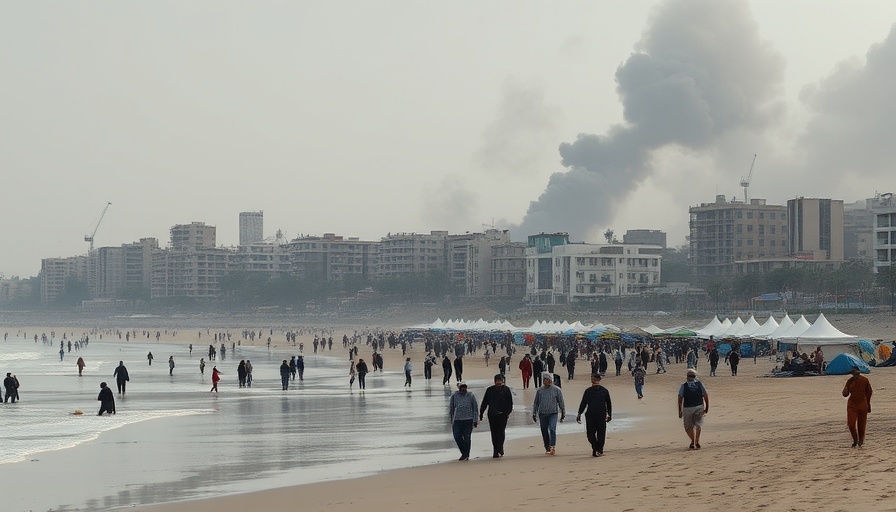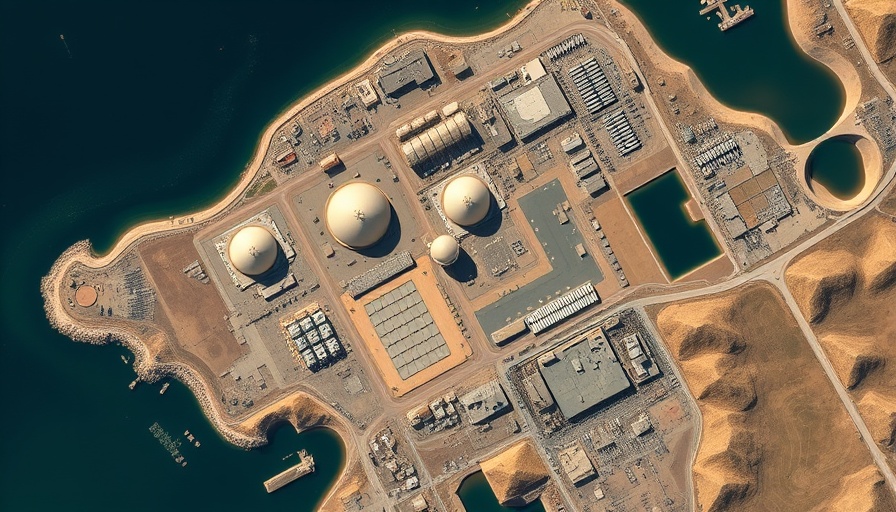
The Economic Crisis in Gaza: A Deepening Humanitarian Tragedy
As conflict continues to rage in the Gaza Strip, the United Nations' latest report paints a dire picture of the humanitarian crisis fueled by Israel's actions. With destruction permeating all aspects of economic life in Gaza, exacerbated by an enduring blockade and forced displacement, the overwhelming evidence points to catastrophic economic and humanitarian consequences. UN experts warn that the situation not only violates international law but also extinguishes hopes for a prosperous future for countless Palestinians.
Destruction and Unemployment: A Harsh Reality
The experts provide a stark overview of the reality faced by residents. Following the recent escalation of violence, most commercial, agricultural, and industrial sectors in Gaza have been severely damaged or outright destroyed. Unemployment rates have reached a staggering 80%, while the overall GDP has contracted sharply. Such economic devastation has led to widespread poverty—a reality where the UN-backed Integrated Food Security Phase Classification (IPC) now officially recognizes famine in parts of Gaza.
The Impact of the Financial Stranglehold
The financial hardships in Gaza are mirrored by significant enforcement measures taken by Israel—actions that are perceived as a deliberate attempt to cripple the Palestinian economy. Banks and ATMs which were critical for daily transactions are largely inoperable, thus creating a crippling liquidity crisis. The blockade prevents the inflow of new currency, while soaring inflation effectively erodes any semblance of a stable income. In mid-2025, the prices of basic cooking oil surged by 1,200%, and flour—a staple food—by an astonishing 5,000%.
Financial Policies: A Path to Isolation?
Meanwhile, the unilateral decisions made by Israeli authorities continue to undo the fabric of social and economic connectivity that once existed. The withholding of tax revenues and the suspension of work permits for over 100,000 Palestinian workers has fundamentally altered the cash inflow dynamics. The Palestinian economy, which once thrived through such contributions, is now facing a stark reality where dependency on foreign aid is looming larger than ever. Experts express deep concern regarding the implications of proposals from Israeli officials aimed at severing financial ties with Palestinian banks. Such actions threaten to further isolate Palestinians from the global financial system and deepen the economic abyss.
Understanding the Broader Context
To grasp the entirety of this financial stranglehold, we must acknowledge the broader geopolitical landscape—a landscape riddled with decades of conflict, displacement, and violations of human rights. This isn’t merely about economics; it’s about lives disrupted and futures stolen. The ongoing land appropriation and the exploitation of natural resources by Israeli settlers further complicate the landscape, raising moral and ethical questions about economic sustainability in occupied regions.
International Obligations and Hope for Change
The UN experts reiterated that Israel's actions violate its legal obligations as an occupying power, infringing upon the collective rights of the Palestinian people to economic self-determination. As global citizens, it is essential to comprehend the gravity of this situation, advocate for political action, and strive for a resolution that respects human dignity and economic justice. The call for international accountability rings louder than ever—urging nations to reassess their stance and approach towards the ongoing turmoil.
Final Thoughts: The Path Forward
Breaking away from the cycle of violence demands collaborative efforts on a global scale. Spreading awareness about the plight of Palestinians can foster greater understanding and empathy. Conversations about conflict resolution or engaging in dialogue are steps that can alter the narrative and lead towards peace and compassion. Together, we have the power to incite change, advocating for policies that uplift lives rather than debilitate them.
Call to Action: It is crucial to amplify the voices of those affected by these crises. By informing ourselves and engaging with organizations dedicated to humanitarian support, we can contribute to a more equitable future for the Palestinian people. Together, let's cultivate hope and collective love to truly understand and transform the circumstances driving such turmoil.
 Add Row
Add Row  Add
Add 


Write A Comment